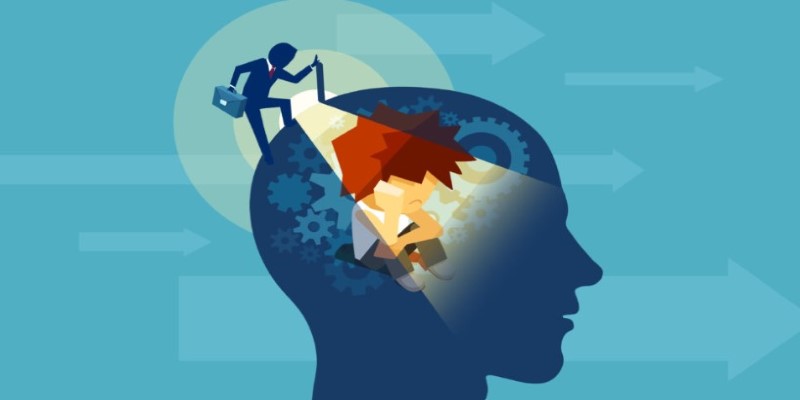Navigating ADHD: A Comprehensive Guide to Symptoms and Management
Attention Deficit Hyperactivity Disorder (ADHD) is more than just an occasional bout of hyperactivity or momentary lapse in attention. It is a pervasive and persistent challenge that affects how millions of people navigate their daily lives, from childhood through adulthood. Though often brushed aside as mere restlessness or distractibility, ADHD is a profound neurodevelopmental condition with symptoms that weave complex patterns through every aspect of life.
By exploring these symptoms in depth, we can begin to understand the real experiences of those with ADHD, dispel common myths, and highlight the nuanced ways in which it impacts education, relationships, and work. This article offers a fresh perspective on recognizing and managing ADHD symptoms, aiming to provide meaningful insights into a condition often misunderstood and stereotyped by society.
Unpacking the Symptoms of ADHD
ADHD symptoms are broadly categorized into two areas: inattention and hyperactivity-impulsivity. However, these symptoms manifest differently in each person, and their intensity can vary, making ADHD complex to identify and manage.
Inattention: A Hidden Struggle
Inattentive ADHD often presents as a subtle yet significant struggle. People with this type may seem disorganized or distracted, frequently losing focus during conversations or tasks. They may start multiple activities without completing them, struggle with time management, and often misplace objects or forget important details.

This can lead to underperformance in school or work and cause frustration in relationships. Though they arent usually disruptive, the mental fatigue and constant difficulty concentrating can result in feelings of frustration, anxiety, and overwhelm.
Hyperactivity and Impulsivity: Always in Motion
Hyperactivity, particularly evident in children, often shows up as fidgeting, constant movement, or excessive talking. In adults, this can present as internal restlessness or an inability to stay still. Impulsivity leads to rash decisions, interrupting conversations, or engaging in risky actions without thinking through the consequences.
These impulsive tendencies and hyperactivity create challenges in social situations and work environments, where self-regulation is crucial for maintaining relationships and meeting professional expectations. The inability to slow down or think ahead often disrupts daily life.
Emotional Dysregulation: Overlooked but Real
Emotional dysregulation is a common yet frequently overlooked symptom of ADHD. Individuals with ADHD often experience intense emotions, such as sudden anger, frustration, or sadness, which can feel out of proportion to the situation.
These mood swings can be overwhelming and unpredictable, leading to difficulties in maintaining relationships and affecting self-esteem. Emotional outbursts or irritability can create misunderstandings in social and professional settings, making it harder for individuals to navigate daily interactions and manage stress effectively.
Forgetfulness and Poor Time Management
Forgetfulness and poor time management are hallmark symptoms of ADHD, often stemming from difficulties with working memory. Individuals may forget everyday tasks, appointments, or deadlines, leading to disorganization and stress.
Misjudging how long tasks will take can cause chronic lateness or last-minute scrambling to finish work. Procrastination is also common, as the thought of starting a task can feel overwhelming. This combination of forgetfulness and time mismanagement can hinder personal and professional growth, creating ongoing challenges in daily life.
The Impact of ADHD Symptoms on Daily Life
The symptoms of Attention Deficit Hyperactivity Disorder (ADHD) extend far beyond the classroom and workplace, permeating all aspects of life for those affected.
Academic and Professional Challenges
Students with ADHD often struggle with distractions that impair their ability to follow lectures and complete assignments, potentially misrepresenting their true intellectual abilities. Adults may face difficulties with organization, time management, and maintaining attention, which can lead to inconsistent work performance and hinder career progression.
Social and Emotional Impact

Social interactions can be problematic for individuals with ADHD, who may have trouble with impulsive behavior and interpreting social cues. This can lead to misunderstandings, social rejection, and a detrimental effect on self-esteem and personal relationships. Emotionally, impulsivity and frustration might manifest as quick temper flares and mood swings, complicating relationships further.
Impact on Family Dynamics
ADHD can also strain family dynamics, increasing stress levels and necessitating adjustments in family roles and expectations. This often requires family members to seek counseling or therapy to maintain healthy relationships.
Lifestyle and Health Risks
Individuals with ADHD are at a higher risk of accidental injuries. They may struggle with poor dietary and exercise habits, which can lead to health issues like obesity and cardiovascular diseases. The chronic stress associated with managing ADHD symptoms can also lead to anxiety and depression.
Understanding the comprehensive impact of ADHD can help provide better support and create effective strategies to improve the quality of life for those affected.
Managing ADHD: Strategies and Supports
Managing ADHD effectively involves a comprehensive approach that includes medical treatments, psychological therapies, and practical adjustments in daily life. Medications such are commonly prescribed to help alleviate symptoms by enhancing concentration and reducing impulsivity and hyperactivity. Behavioral therapies also play a crucial role, helping individuals develop skills to cope with their symptoms, such as time management and organizational strategies.
Moreover, lifestyle adjustments can significantly enhance the effectiveness of formal treatments. Structured routines, organized environments, and mindfulness practices help individuals with ADHD improve focus and reduce stress. Support from family, teachers, and peers is also essential, providing a supportive network that encourages positive behaviors and helps manage challenges. Educational accommodations can offer additional support, tailoring learning environments to meet individual needs. Together, these strategies form a robust framework for managing ADHD, aiming to empower individuals to lead productive and fulfilling lives.
Conclusion
Understanding ADHD symptoms is crucial for effective management. A holistic approach, combining medical treatment, emotional support, and accommodations at home, school, or work, allows for tailored care that addresses the condition's complexities. Recognizing the varied ways ADHD manifests helps break down stigma and fosters greater acceptance in society.
As awareness grows, it becomes clear that compassion, understanding, and targeted interventions are key to improving the lives of those with ADHD, ensuring they receive the support they need to thrive in all areas of life.












